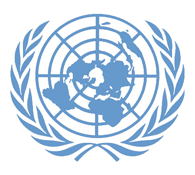
| New Biosphere Reserves Selected | 21 July 10 |
 The United Nations Educational, Scientific and Cultural Organization (UNESCO) has added 13 new sites and five extensions to the world network of biosphere reserves at the 22nd session of the International Coordination Council held in Paris, France May 31-June 4, 2010. The United Nations Educational, Scientific and Cultural Organization (UNESCO) has added 13 new sites and five extensions to the world network of biosphere reserves at the 22nd session of the International Coordination Council held in Paris, France May 31-June 4, 2010.Biosphere reserves are areas listed under UNESCO's Man and the Biosphere program. They serve as places to test integrated management of terrestrial, freshwater, coastal and marine resources and biodiversity. The first biosphere reserves in Ethiopia and Zimbabwe are among the new sites. One of the two new Ethiopian reserves includes the place of origin of the plant Caffea Arabica, believed to be the first species of coffee ever cultivated. The Council also added 10 biosphere reserve sites in Iran, Mexico, Nicaragua, Peru, Poland, Slovenia, South Korea, and Sweden, while five sites in Chile, Costa Rica, Finland, Germany and Switzerland were extended. The addition of 13 new sites brings the world biosphere reserves network to 564 in 109 countries, including 15 biosphere reserves in Canada. View June 2, 2010 UNESCO press releaseView June 2, 2010 CBC News article View June 5, 2010 Ethiopian News Agency article View June 7, 2010 Environmental News Service article Source: UNESCO, CBC News, Ethiopian News Agency, Environmental News Service |
|
 Print version Print version |
Top |
